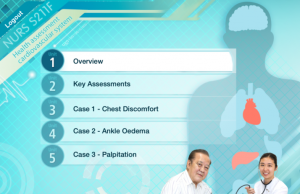This website uses cookies so that we can provide you with the best user experience possible. Cookie information is stored in your browser and performs functions such as recognising you when you return to our website and helping our team to understand which sections of the website you find most interesting and useful.
Privacy Overview





 Technology-enhanced learning is a focus of educational development in HKMU. Its nursing programmes have long been using a range of mobile apps to enrich students' learning experience. To understand the effectiveness of the use of mobile apps, Dr Kam Cheong Li, Director overseeing research of the University, conducted a research study to evaluate the mobile learning practice in HKMU nursing programmes. This study, supported by the Research Grants Council's Faculty Development Scheme, contributed to filling the knowledge gap in understanding factors impacting the effectiveness of mobile learning in nursing education, and offered effective instruments for evaluation and use in such a context.
Technology-enhanced learning is a focus of educational development in HKMU. Its nursing programmes have long been using a range of mobile apps to enrich students' learning experience. To understand the effectiveness of the use of mobile apps, Dr Kam Cheong Li, Director overseeing research of the University, conducted a research study to evaluate the mobile learning practice in HKMU nursing programmes. This study, supported by the Research Grants Council's Faculty Development Scheme, contributed to filling the knowledge gap in understanding factors impacting the effectiveness of mobile learning in nursing education, and offered effective instruments for evaluation and use in such a context.








